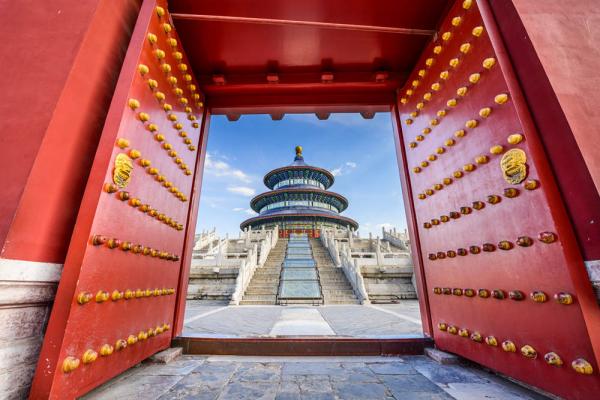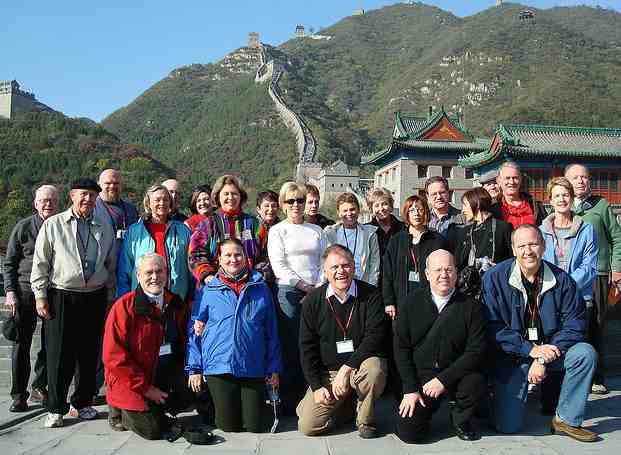20 Good Tips For Picking China Tour Websites
20 Good Tips For Picking China Tour Websites
Blog Article
Top 10 Tips For Bargaining Etiquette For Shopping In China
1. Start low, but be RespectfulTip You can offer 50-70 percent less than the suggested price and then negotiate higher. To show that you're serious, act respectful and firm.
Pro The advantage is that you can put in your position without causing offense to the seller.
Con: Starting too low can cause a seller to be frustrated, particularly in items that have a smaller margin.
2. What is the value of the market?
It is possible to avoid paying too much if you do your homework and determine the value of the item.
Pros: You won't be ripped off, and you'll have confidence in the process of negotiating.
Cons: Trying to find exclusive or handcrafted products can be time-consuming particularly if they're not easy to find.
3. Show Genuine Interest
Tips: Sellers might be more inclined than usual to bargain with you, if they feel you're truly interested in purchasing.
Pro: It builds trust and improves your chances of getting the best deal.
Pro: Your excessive enthusiasm may be taken to mean a desire or desire to pay for more. This will reduce your credibility.
4. Walk Away Strategically
Tip: If you find that the price isn't dropping and you're not sure if it's worth the risk, leave gradually. You could get a contact from the seller offering a higher offer.
Pro: This strategy is often effective in obtaining the lowest price.
The negative: It could backfire if a seller does not want to cut the price, particularly for high-demand items.
5. Learn Basic Mandarin Phrases
Tip: Phrases like "Tai gui le!" (Too expensive!) or "Pianyi yidian ba" (Can you lower the price?) Make an effort.
Pro: This makes the negotiation personal, and typically softens the sellers' attitude.
Cons: Language that is limited may hinder more complicated negotiations.
6. Be Patient and Calm
Tips: Negotiations may take time. Keep a cool and calm attitude to not appear anxious.
Pro: Sellers are more likely be able to reward buyers who are patient and calm by offering them better deals.
Cons: It takes time and effort, particularly when there are lots of competitors.
7. Bring Cash
It is possible that sellers are willing to cut the price in cash payment instead of using digital payment methods.
Pro: Cash offers made immediately can result in discounts, particularly with small sellers.
Con: Pickpockets can make it unsafe to carry cash at markets.
8. Discounts for Groups
Tip: When buying multiple items, you can request a discount price.
Pro: You will increase your bargaining skills and score the best deal.
Cons: You may need to purchase more products which don't always meet your requirements.
9. Do not be afraid say"no"
TIP: Politely decline and walk away if a seller does not agree to lower the price to your range.
Pros: It reduces buyers' remorse and ensures you are in your financial limits.
Pro: Don't let yourself miss out on something that you truly want.
10. Know When Not to Bargain
The department stores and boutiques that are high-end is not the place to shop.
Pros: Prevents embarrassment while maintaining cultural respect.
Con: Some settings limit the ability of you to bargain.
Pros of Bargaining in China
Negotiation can reduce costs by 50% or more..
Bargaining is a great method to discover local customs and traditions.
Personal Interaction: Creates an interaction with local vendors.
Pros and Cons of Bargaining in the Chinese Market
Haggling can take a lot of time, especially for those who are not experienced.
Problems with communication can arise if you don't know basic Mandarin.
It can be stressful for some people: Not everyone enjoys the back-and-forth of bargaining.
You'll be able explore Chinese markets and negotiate with ease once you master these tips! See the top rated view highlights of this attraction for website examples including shopping in nanjing, chinese vegetarian food a vegetarians guide in china, shaoxing wine the best yellow wine in china, shopping in shangri la, chinese wood carving originated in neolithic period, taishan tour maps, tours for the disabled, shopping in dunhuang, taishan, anren ancient town and more.
Top 10 Tips For Photography And Fees When Visiting Temples In China
1. You can plan your budget by looking up ticket prices before you go to the venue. Plan your trip in advance.
You can plan for the payment ahead and avoid any unexpected costs.
Con: Unexpected expenses like fees for special exhibits, could arise.
2. Bring cash or digital payment
A tip: Some temples will only accept cash or popular Chinese payment methods, such as WeChat Pay or Alipay.
Pro: Easy entry and pay without any the need for delays.
Cons: There are few options for foreigners who are unaccustomed to electronic payment applications.
3. Look for Photography Signs
If you're not sure if photography is allowed, always look for indications. Many temples do not allow photography within their sanctuaries, or in close proximity to sacred artifacts.
Pro: Reduces the risk of the risk of a lapse in obedience or breaking rules.
Con: Rules could differ between areas within the same temple, which requires extra care.
4. Avoid Flash Photography
Even in areas that allow you to take photos, avoid using flash as this can result in damage to artifacts, or disturb worshipers.
Pro: It protects the temple environment and art.
Cons: Poor lighting could result in photos that aren't ideal.
5. Respect Worshippers Privacy
Tip: Avoid taking pictures of people praying or participating in religious ceremonies unless you have their consent.
Pro: Shows cultural sensitivity and respect of personal space.
Con The ability you have to capture the mood of a temple could be limited.
6. Follow Drone Regulations
A tip: Drone use is generally forbidden near temples. Be sure to check local regulations if you intend to use a drone for aerial photography.
Pro: Avoid penalties or confiscation.
Cons: The small number of angles that photography can take makes it difficult to create distinctive shots.
7. Be ready for any additional charges
A tip: Some temples cost you additional fees to permit your camera if it is professional such as DSLRs as well as tripods.
Pro: This guarantees that the images are taken in high-quality and legally.
Cons: Increases overall travel costs
8. Dress Moderately
Tips: Dress code is important when visiting temples. Inappropriate clothing could result in being denied entry or a refusing entry.
Pro: This displays respect for the environment of religion and assists you in blending into the community.
Con: May need extra preparation, particularly during hot weather.
9. Beware of crowds when taking photos
Visit the park early in the morning or in afternoon to avoid the crowds. This allows you to photograph without getting in the way.
Pro: Improves your enjoyment by taking better photos.
Con: Requires adjusting your schedule, which might not always be convenient.
10. If not sure, request permission
Tips: If you are unsure regarding photography regulations, consult temple staff or signposts for clarification.
Pro: It helps you to avoid accidentally breaking the rules.
Con: Language barriers might make communication difficult.
The advantages of adhering to the rules of photography and fees
Cultural Respect: Adherence to the local customs and beliefs.
Artifact Preservation: This safeguards fragile artifacts and buildings.
Positive Experiences Avoiding confrontations with temple staff and worshippers.
Legal Compliance: Aids in avoid penalties for infringements of photography laws.
Cons of Following Fees & Photography Rules
More Costs: The cost of additional fees for entry and photography permits could add up.
Restricted Creativity: Limitations can hinder the ability to get the perfect shot.
Language Barriers: Inability to comprehend local signage or to communicate with staff.
It is a time-consuming task to research and preparing for the future requires additional effort.
The observance of photography rules and fees will allow you to have fun and enjoy your time in China's beautiful temples. They will also be protected for their spiritual, cultural, and historic authenticity. Have a look at the top rated read more about this travel destination for more advice including eating in guilin, zechawa valley tour route, shopping in dunhuang, entertainment in hong kong, blue dragon temple, eating in changchun, shopping in fuzhou, the color of dress in china, snow beer the best selling beer in the world, eating in fuzhou and more.